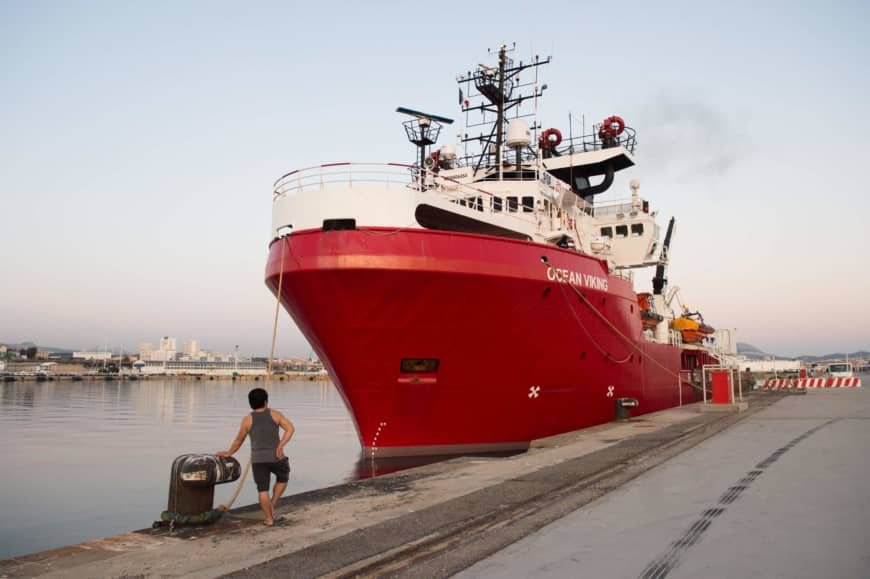One woman was found dead while aid groups said Sunday around 1,000 migrants were rescued overnight off the Libyan coast, the latest victim among growing numbers seeking to reach Europe.
The rescue team comes just days after hundreds of people were feared drowned after boat disasters off the Libyan coast.

Medecins sans Frontieres (MSF) and SOS Mediterranee said the dead woman was found on one of several rudimentary vessels carrying would-be refugees, helped during a six-hour operation.
Two rescue ships picked up the migrants as they sought to make the perilous journey to Italy, three days after more than 250 Africans were feared drowned off Libya after a rescue boat found five corpses close to two sinking rubber dinghies.
Despite rough winter seas, migrant departures from Libya on boats chartered by people traffickers have accelerated in recent months from already-record levels, with patrol boats rescuing more than 6 000 people in the past week alone.
More than 22,000 have been picked up since the turn of the year, as aid groups cite worsening living conditions for migrants in Libya and also fears the sea route to Europe could soon be closed to traffickers.
Prior to Thursday’s discovery, the UN estimated at least 440 migrants had died trying to make the crossing to Italy since the start of 2017, based on bodies recovered and testimonies from survivors of shipwrecks.
But nobody knows how many people have drowned without trace.
Around half a million migrants, most from Africa, shrugged off the dangers of making the voyage to make it to Italy between late 2013 and the end of last year.
Last year, around 180 000 made it, an annual rise of 18%.
Italy’s interior ministry forecasts its overstretched facilities for asylum seekers will have to accommodate about another 250 000 this year, despite Rome beefing up cooperation with Libya, its former colony, to try to tackle the problem.
The EU will also provide support for the setting up of “safe” camps in Libya and the voluntary repatriation of refugees willing to return to their countries of origin.
The plan has been criticised by several aid groups, however, that say leaders have abandoned humanitarian values and misrepresented conditions in Libya, where the UN-backed government of Fayez Serraj has only shaky and partial hold on the country.








